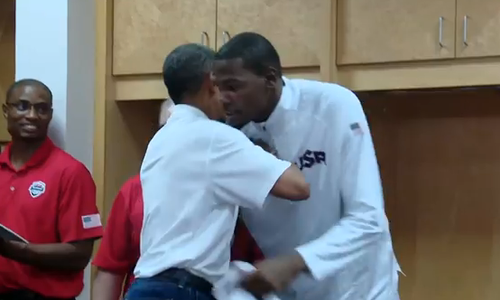Do you think white people know we are acting when we code switch? Perhaps they are secretly in on our little white lie but enjoy seeing us squirm through inauthentic communication. I doubt that they are fully aware that we must make insincere efforts to fit into most institutions. Surely, they are so blinded in their privilege that they think we really, really care about cottages, camping, and concerts. Most black people who work in professional environments must code switch the moment they enter those building doors. Sometimes, it occurs even before this. I know I turn my music down a few notches as I pull into the parking lot at my work. Don’t want to get caught “bumpin’ that trap music” and then subsequently questioned on the goings-on of contemporary hip-hop music by peers who are asking me to explain but simultaneously aren’t asking me anything. I think about my role as an educator, working in what can be considered an antiquated and conservative environment, one where code switching is almost customary. But then I remember one of my core pedagogical philosophies: be yourself, authenticity is vital to effective teaching. For black educators especially, teaching has an added layer of difficulty due to multilingual representations we are expected to perform on a daily basis. So, how do we teach this code switching thing?
I was shocked to learn how groundbreaking a thought it was to greet your students at the door of your classroom on a daily basis. I mean, out of all the strategies in effective classroom practice, that one seems pretty basic. Nevertheless, I’m sure the manner in which I “greet” my students is not of the prescribed taste to most folks. Several students and I come up with our personalized greetings that are multifaceted, similar to the ones you see on NBA courts shared before and after games by teammates. When teaching, I use a whole lotta metaphors. After teaching a math concept, I will affirm to my students that this stuff is “baby food”. Often, they will reply saying, “Yup…this is Gerber, Mr. Morris”. If you walked into my classroom during a moment like this and didn’t have a full grasp on the cultural connectedness that my students and I share, you would probably ask what that meant. My students would tell you that it means the math we are learning is “easy”. As a result of the way we approach the subject, I feel that my students are genuinely engaged during what we call “math season”, that daily one-hour block before lunch where we are learning about geometry and algebra and all that other good stuff.
When I code switch, it isn’t anything necessarily big nor explicit that I am doing. I am just talking how I talk to my friends outside of “office hours”. My kids understand the lingo because it is also natural to them – outside of school. These small metaphors, meanings, and greetings are minute examples of how we can start to normalize language. Maybe then, code switching won’t be such an act for us.
How I talk to some of my colleagues is the complete one-eighty. I pronounce my words with a little more efficacy. I tend to use more words that I picked up through reading article after article in university. I channel my inner Ted Koppel. I relish when my students are witness to this. I relish because I want my students to pick up on this ability – the ability to be multilingual while only using one language.
This year, I think I will probably be a little more explicit with teaching how to code switch. Perhaps I’ll use a t-chart in science class to draw the connection between slang, “common” language, and scientific terminology. In my community and in this day and time it is, unfortunately, needed more than ever. Jay-Z taught us how to “move in a room full of vultures”. And we minorities must be adept at this if we want to succeed professionally. I am just doing my part to continue that education.
[share title=”Share this Post” facebook=”true” twitter=”true” google_plus=”true”]

